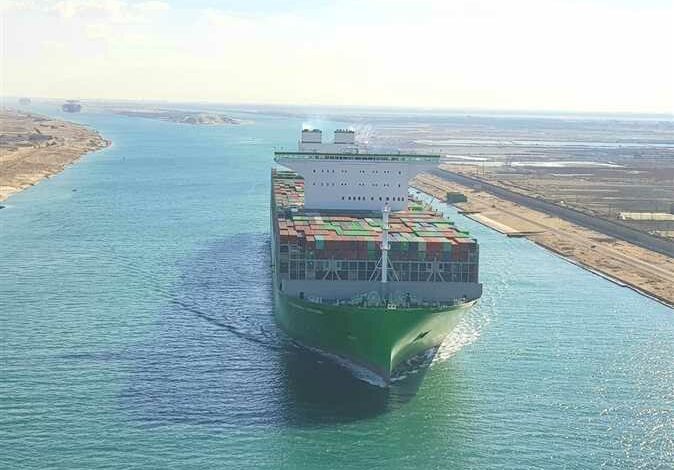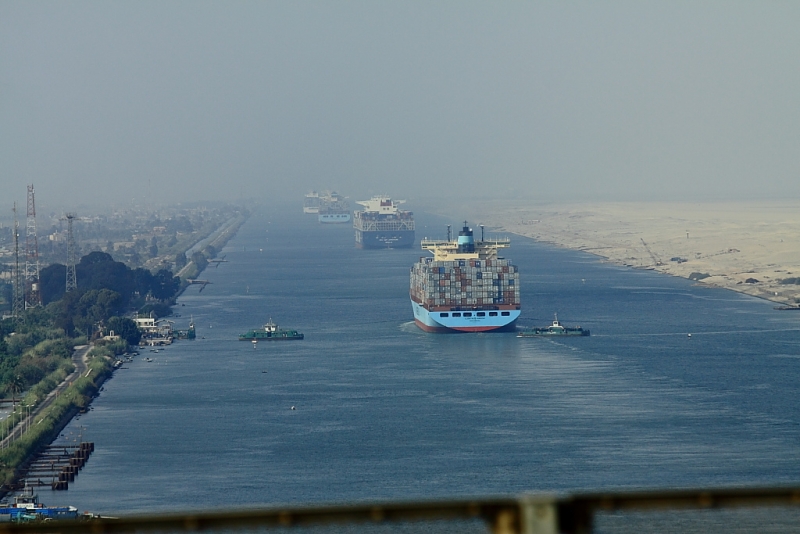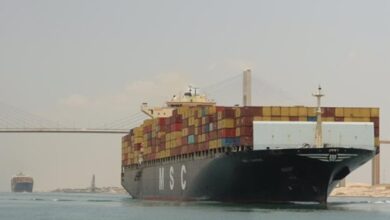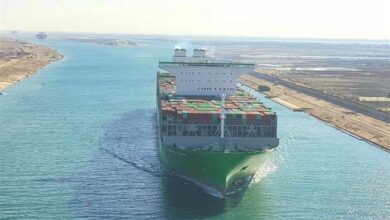
Lieutenant General Osama Rabie, head of the Suez Canal Authority, stressed the absolute Egyptian sovereignty over the Suez Canal.
Tgus refers to both its political and economic aspects, pointing out that the Suez Canal belongs to the Egyptians, and will not be sold.
During a conference held by the authority, Thursday, in the presence of Karam Gabr, head of the Supreme Council for Media Regulation, Rabie explained key information about the Suez Canal Authority Fund draft law.
This6new law has recently sparked controversy.
Rabie stressed the commitment of the Suez Canal Authority to what was stipulated in Article 43 of the constitution, to guarantee Egyptian sovereignty over the canal, and its content.
The state is committed to protecting, developing and preserving the Suez Canal as an international waterway owned by it and is also committed to developing the canal sector as a distinguished economic hub, he said.
When President Sisi thought of building the new Suez Canal, the project aimed to facilitate movement of giant ships entering the canal, he said adding the new channel cost LE65 billion and was excavated at a length of 72 kilometers.
Rabie said: “We do not have the right to sell the Suez Canal or offer it for rent, as it belongs to Egypt and the Egyptians.
The canal achieved about $8 billion in revenue this year, and the new fund will implement giant projects, especially since the canal in 2023 will double these figures.”
Rabie added, in response to one of the questions: “We are already making foreign partnerships, but we have the upper hand.
Egypt has the largest percentage, and we do not agree to anything that affects Egyptian sovereignty from this partnership that took place years ago.”
The canal authority was established for two main reasons, namely: investment, and the second is to spend on crises.
President Sisi discussed the importance of having a fund in 2019 to spend on investment, emergencies and crises, Rabie said, noting that there are oversight bodies that monitor this fund, including the Central Auditing Agency.
Rabie reviewed the feasibility of the Suez Canal Authority Fund in facing crises and emergency situations that could affect dollar flows to the Suez Canal, the most prominent of which was during the recent coronavirus crisis, the Ever Given ship crisis, and the Russian-Ukrainian war.
In addition to its investment role, he said part of the fund’s resources will be invested in implementing canal development projects, without burdening the state treasury.
Rabie said that the management of the fund is independent and has nothing to do with the channel’s assets, budget, or projects.
The fund will also be monitored by the Central Auditing Agency, and its activities will be followed up through a board of directors and a general assembly that monitors all its activities and dealings.
The canal’s revenues will not be deducted in favor of the fund’s resources, as the fund will depend on the surplus of the budget allocated to the authority, which is approved by the Ministry of Finance.
Rabie sent a message of reassurance regarding the navigational statistics in the canal during 2022.
The Suez Canal is expected to set new and unprecedented records throughout its history, to achieve the highest annual transit of ships at 23,869 ships, and the highest annual net tonnage of 1.4 billion tons.
Rabie also explained that the navigational reports during the current year monitored a large boom in the number of ships transiting the canal, to record the highest annual transit rate ever, with 23,869 ships compared to 20,694 ships crossing in 2021, an increase of 15.4 percent.



